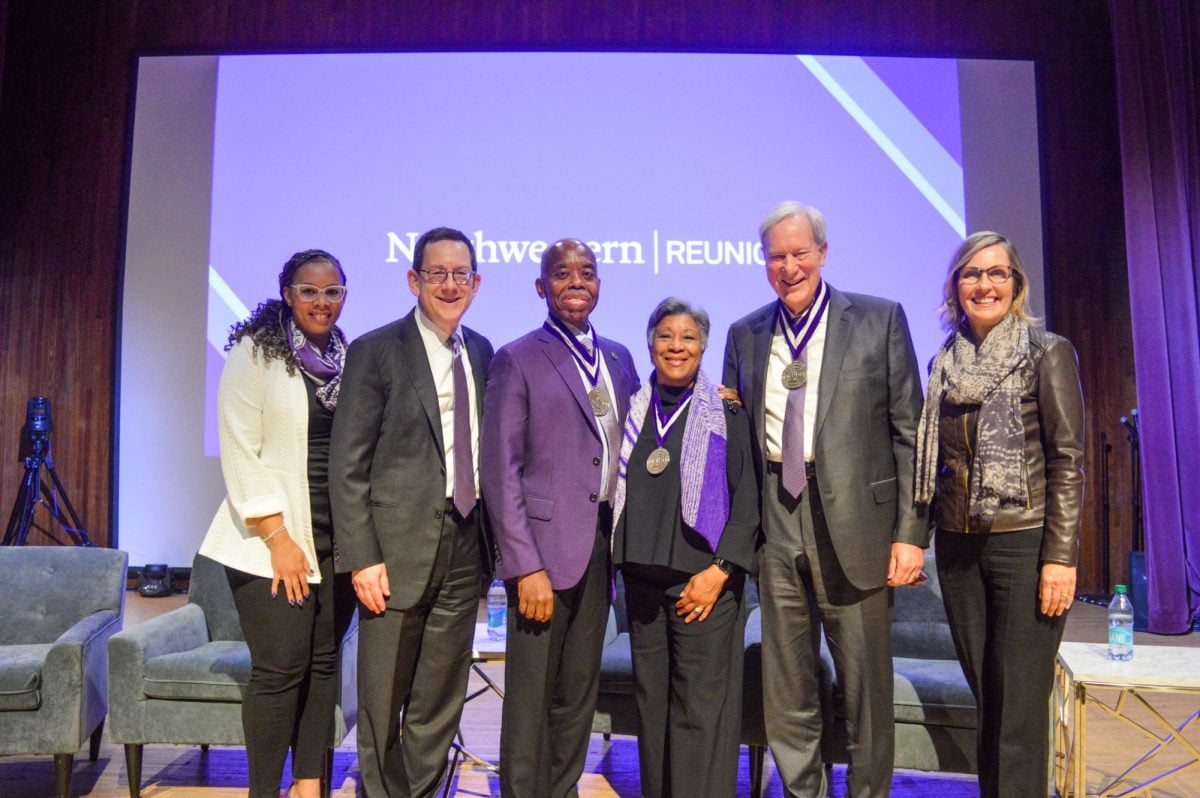Northwestern School of Law Prof. Steven G. Calabresi co-authored an article in the most recent volume of the Texas Law Review that marks a drastic shift from traditional conservative legal interpretation of the 14th Amendment. His new work, legal experts say, could affect how women’s rights and same-sex marriage are contested in American courts.
Calabresi founded the right-leaning Federalist Society and worked in the Justice Department under President Ronald Reagan, according to the NU School of Law website.
He has advocated an originalist method of constitutional interpretation, in which the text of the Constitution is understood based on the original intent of those writing the provisions.
Supreme Court justices Antonin Scalia and Clarence Thomas also subscribe to this interpretation, Calabresi wrote. Scalia has argued that the Equal Protection Clause of the 14th Amendment was intended to provide equal rights to blacks and did not apply to women.
In his article, Calabresi uses originalism to argue that the clause does in fact provide equal protection to women.
“Our analysis leads to the conclusion that the text of the 14th Amendment was meant, as an original matter, to forbid class-based legislation and any law that creates a system of caste,” Calabresi wrote.
Calabresi’s argument also takes into account the 19th Amendment, which provided for female suffrage. By prohibiting gender-based discrimination at the voting booth, Calabresi argues, the drafters of the 19th Amendment codified gender equality into the Constitution.
Medill senior Kelsey Sheridan, a member of College Feminists at NU, said Calabresi’s views are indicative of feminism’s growing appeal.
“Feminism has allies in places that were once unlikely,” Sheridan said.
In arguing that the 14th Amendment does not allow for gender discrimination, Calabresi may have also opened the door for an originalist defense of same-sex marriage through his blanket statement against class-based legislation.
A challenge to California’s Proposition 8, which bans same-sex marriage, is currently pending in the 9th Circuit Court of Appeals and is expected to end up in front of the Supreme Court.
In August 2010, District Judge Vaughn R. Walker struck down Proposition 8 on Equal Protection grounds.
“Proposition 8 singles out gays and lesbians and legitimates their unequal treatment,” Walker wrote in his decision.
Walker’s decision is part of a slow but steady trend in expansion of gay rights. New York legalized same-sex marriage in June and gays and lesbians have been allowed to serve openly in the U.S. military since September.
Weinberg senior Jeff Geiger, the president of NU’s Rainbow Alliance, said he can also see greater acceptance on campus and expects the slow growth in acceptance to escalate and reach a tipping point in the coming years.
“Let’s take legalizing gay marriage,” he said. “I think legislatively there’s going to be kind of that ‘aha’ moment where people who see themselves in the middle realize that we’re headed in that direction.”












